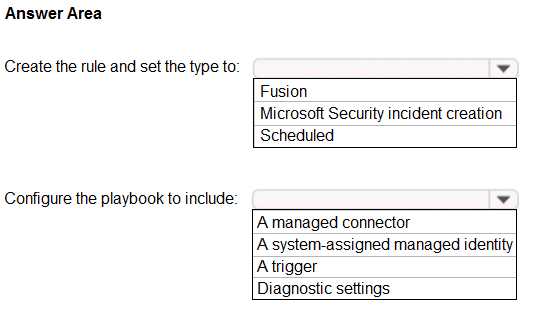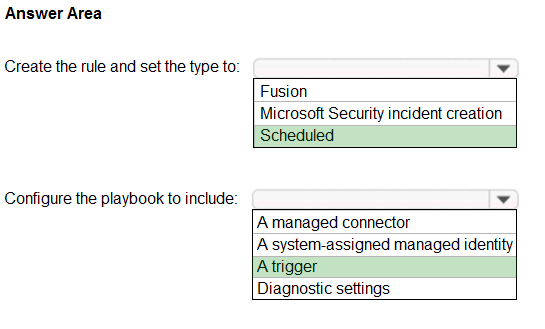

HOTSPOT -
You have an Azure Sentinel workspace that contains an Azure Active Directory (Azure AD) connector, an Azure Log Analytics query named Query1, and a playbook named Playbook1.
Query1 returns a subset of security events generated by Azure AD.
You plan to create an Azure Sentinel analytic rule based on Query1 that will trigger Playbook1.
You need to ensure that you can add Playbook1 to the new rule.
What should you do? To answer, select the appropriate options in the answer area.
NOTE: Each correct selection is worth one point.
Hot Area:

gcpbrig01
Highly Voted 3 years, 10 months agobrooklyn510
Highly Voted 1 year agomikey_2
Most Recent 1 year, 1 month agotweleve
1 year, 3 months agomajstor86
1 year, 11 months agoligu
1 year, 11 months agoEltooth
2 years, 10 months agoTombarc
3 years agoJco
3 years, 4 months agokam117
3 years, 4 months agoTonytheTiger
3 years, 4 months agoMISCOLO
3 years, 3 months agofrancis6170
3 years, 4 months agoMISCOLO
3 years, 3 months agopoplovic
3 years, 4 months agokevinj319
2 years, 3 months agoSocgen1
3 years, 5 months agorsharma007
3 years, 5 months agoDavidchercm
3 years, 6 months agokumax
3 years, 7 months ago